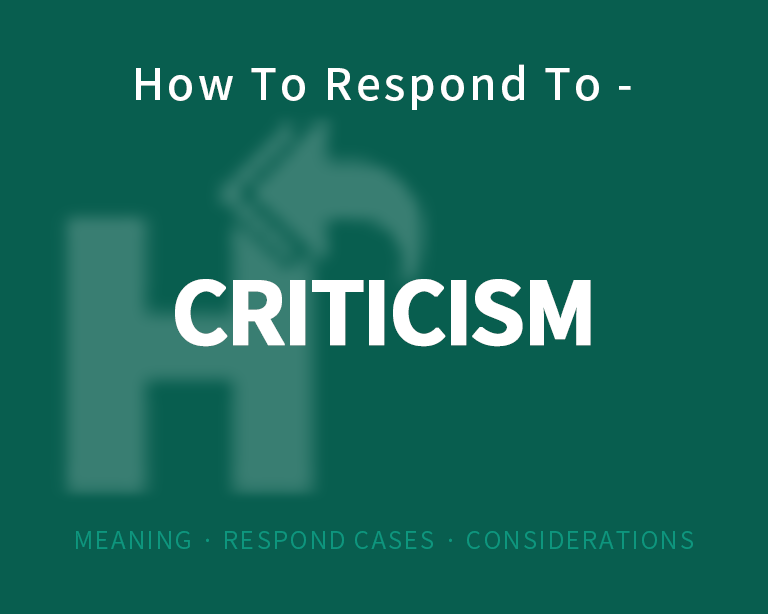The Best Way to Respond to Criticism?

Responding well to criticism is challenging but an important life skill. Criticism, though difficult to receive, can provide opportunity for growth if navigated constructively. The following thoughts aim to provide guidance on identifying criticism and responding in a wise and productive manner.
What is Criticism in a Conversation
Criticism refers to expressing disapproval or judgement about someone or something. Signs of criticism in a conversation include:
- Negative feedback: ""Your work has been lacking lately."" ""I'm disappointed in your performance.""
- Correction: ""You made some mistakes in your analysis."" ""Your approach needs improvement.""
- Complaints: ""Your behavior was unacceptable."" ""You're not meeting expectations.""
How to Respond to Criticism
When responding to criticism, remain open-minded and receptive rather than becoming defensive. Some tips:
- Listen actively and ask clarifying questions. Make sure you understand the perspective and concerns of the other person.
- Say ""thank you for the feedback."" Express appreciation for the other person's willingness to provide constructive criticism.
- Focus on specific examples and how you can improve. Ask for concrete ways you can address their concerns and become more effective.
- Stay solution-focused. Once you understand the issues, shift the conversation towards resolving them in a collaborative manner.
Considerations
Consider the relationship with the person providing criticism and their intentions. Not all criticism is constructive, but even unfair or unjustified criticism can provide opportunity for learning and growth. Your worth isn't defined by the judgement of others, so avoid internalizing their opinions. However, be open to feedback that can improve your character and competence.
Case Examples
Case 1: Your teacher says, ""Your essay responses lacked depth and evidence. You can do better.""
You respond: ""Thank you for the feedback. Can you provide specific examples so I can strengthen my work going forward?""
Case 2: Your boss says, ""You have failed to meet multiple deadlines this month. We need more consistent performance.""
You respond: ""I sincerely apologize, you're right. Thank you for bringing this to my attention. How can I improve to ensure this does not continue to be an issue?""
Case 3: Your friend says, ""You never make time for me anymore and you seem distracted whenever we're together.""
You respond: ""I'm sorry I've given that impression, your friendship means a lot to me. You're right that I have been wrapped up in other obligations recently. How can I become a better friend and be more present when we spend time together?""
Conclusion
Learn to accept criticism with grace and maturity. Stay open-minded, express gratitude for feedback that can help improve your competence and character. Your worth isn't defined by the opinions of others, so avoid internalizing their judgements. However, be willing to acknowledge real issues that need addressing to become your best self. Growth and progress are made through humility, hard work, and continuous self-reflection. You have the power to turn criticism into opportunity and become wiser through each experience. Stay dedicated to learning and becoming, one day at a time. You've got this!